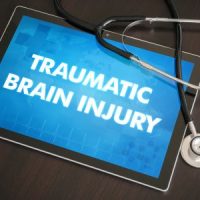What You Should Know About TBIs

Traumatic brain injuries (TBIs) are one of the most devastating injuries that a person can sustain. They can leave victims struggling with chronic headaches, fatigue, mood swings, and memory loss, all of which can make it difficult to hold down a job, or even to maintain personal relationships. TBIs are a common accident-related injury, which means that victims often qualify for financial compensation to cover their medical bills and lost wages.
What is a Traumatic Brain Injury?
Traumatic brain injury (TBI) is a general term that is used to describe any injury that affects how the brain functions. Most are the result of a sudden blow or jolt to the head, which can cause the brain to collide with the inside of the skull, resulting in bleeding, bruising, and torn brain tissue. Other TBIs are caused by an external object, like a shattered piece of skull, actually penetrating the brain itself. Both types of trauma can alter the brain’s chemistry, causing physical, cognitive, and emotional changes. Symptoms can range in severity from mild headaches and some confusion to vomiting and memory loss.
Diagnosis and Testing for a TBI
Most TBIs aren’t visible to the human eye, so they can be difficult to diagnose. That’s why it’s so important for anyone who sustains a sudden impact to the head, to seek medical attention as soon as possible, where a medical professional can perform a physical medical exam, which usually involves:
- Performing a neurological assessment, which evaluates motor function, thinking, sensory function, eye movement, reflexes, and coordination;
- Conducting imaging tests, including MRI and CT scans, which can be used to detect bleeding or bruising in the brain; and
- Blood tests, which can be used to detect the two proteins that are released by the brain into the bloodstream after a person sustains a mild concussion.
The results of these tests will dictate how a medical team moves forward with treatment. In mild cases, for instance, an injured party may need rest and time off from work to recover, while in others a person may require surgery to address bleeding in the brain. Once immediately treated, a person may also need to undergo physical or cognitive therapy to regain some of the skills they may have lost when their brain was damaged. Speech therapy may also be necessary. Unfortunately, these therapies aren’t cheap, which can leave accident victims in an extremely tough spot financially. If, however, someone sustained a TBI because of someone else’s negligence, then he or she could be entitled to compensation not only for post-treatment care, but also for the cost of diagnosis and emergency treatment.
Did You Suffer an Accident-Related TBI?
For help assessing your own legal options following a TBI, feel free to call Boone & Davis and set up a meeting with one of our experienced Florida traumatic brain injury lawyers. Initial consultations are offered free of charge, so don’t hesitate to call us at 954-566-9919 or to send us an online message today.
Sources:
fda.gov/consumers/consumer-updates/traumatic-brain-injury-what-know-about-symptoms-diagnosis-and-treatment
nichd.nih.gov/health/topics/tbi/conditioninfo/diagnose
